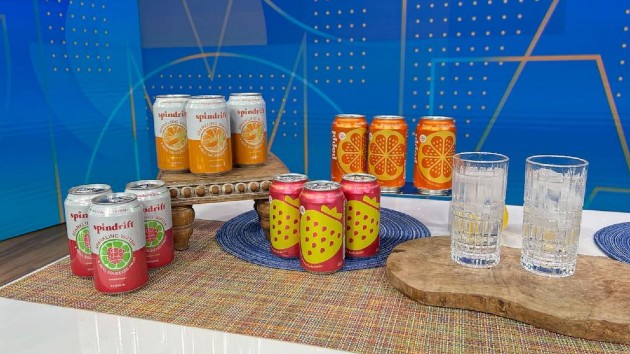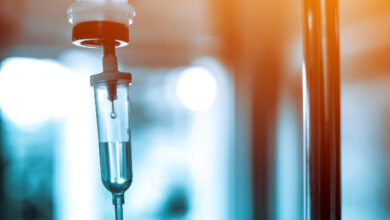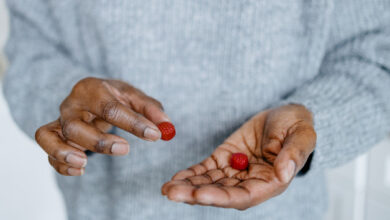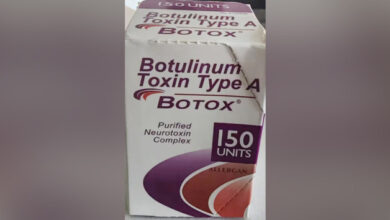What juice sodas, prebiotic beverages a nutritionist would actually drink and why

(NEW YORK) — From Whole Foods to corner bodegas, fizzy juice drinks from fruity seltzers to reduced-sugar sodas that boast prebiotic and digestive support have exploded in popularity.
But what are the actual benefits of these juices and sodas?
Registered dietitian and nutritionist Maya Feller joined ABC News’ Good Morning America on Wednesday to weigh in on the canned beverage consumption trend.
“Flavored sparkling water like Spindrift is literally seltzer water and a splash of real fruit [juice, with] no sugar added or sugar substitutes,” Feller said. “[Juice sodas] can have cane sugar and other juice concentrates.”
Feller said that Spindrift and other similar sparkling water with real fruit is a great option for consumers looking to enjoy a zero-added-sugar soda alternative, and a good way to stay hydrated.
“Be mindful and intentional,” she continued. “Choose the things that have no added sugar.”
While juice sodas can be a better alternative to a sugary traditional soft drink, Feller encouraged people to “read the nutrition facts label, be an informed consumer and know what you’re drinking.”
According to the nutrition page for the popular prebiotic soda Poppi, the drink is a combination of sparking water, organic cane sugar and other juice concentrates, and each drink contains “5 grams of sugar or less.”
Similarly, Olipop, a self-proclaimed “healthy” soda that contains prebiotics, plant fiber and botanicals, states on its website that the drinks contain just 2 to 5 grams of sugar.
When it comes to regular fruit juice like orange or apple juice, Feller reminded people to “opt for 100% juice, because there’s no sugar added.”
Feller recommends drinking just 4 ounces with a meal to “help slow down the sugar absorption into your bloodstream” and avoid a glucose spike.
As for the drinks that boast health support — such as Olipop or Poppi — Feller said to “tread lightly.”
“I wouldn’t say there’s anything negative about it,” she said, reiterating that it’s “a good alternative to sugar sweetened beverages, [but] don’t think you’re doing yourself this health favor — because many scientists don’t actually agree with these health claims.”
“Do your homework — especially when these are claiming to be good for our health,” she added. “When you’re having a prebiotic soda, you are not actually adding any extreme nutrients to your overall day. If you want to have it, go for it.”
Feller said that she will enjoy a prebiotic soda “once in a while,” with the caveat that it’s “an intentional and mindful choice.”
Copyright © 2024, ABC Audio. All rights reserved.






